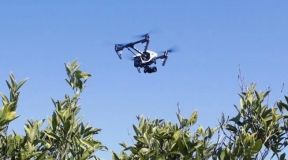An Indian approach to finance which could be mirrored in Africa.
An Indian approach to finance which could be mirrored in Africa.

Over the years, Indian institutions in the financial inclusion space have traditionally relied on banks and development based financial institutions for their funding requirements. While this is a great source of finance for these institutions, it is largely seasonal and lumpy in nature. However clients of these institutions require a continuous of financing to be able to manage their day-to-day requirements.
Reliable access to financial services at optimum cost to households as well as enterprises is important for economic and social well-being. However, there continues to be large groups of financially excluded enterprises and households, owing to various reasons. Financial exclusion in India is directly correlated to informal segments and households, including MSMEs.
Banks and traditional lending institutions depend mostly on the credit appraisal of the borrower based on financial statements, credit history and business documentation as well as the existence of collaterals. This approach results in the financial exclusion of small household ventures and MSMEs which may not necessarily have all the documentation and income proof required for assessment of credit worthiness. Of the 2.6 crore enterprises in India, only 5% have access to financial services. Larger SMEs also face challenges in getting access to finance as their borrowing needs exceed the approval authority of local bank branches and the cost of delivering credit to them with further due diligence is perceived by traditional lenders to be significantly higher.
The MSME sector has consistently grown at a pace faster than India’s GDP. India has witnessed evolution of various models over the years in response to the inadequacy of the banks to meet the credit needs of the unorganised sector. Non-banking finance companies (NBFCs) with localised presence and domain knowledge have started to look at small business finance market as an opportunity. At its very core, financial inclusion needs to focus on the very last mile of credit delivery.
IFMR Capital recognized the need for a continuous supply of capital to these institutions so they could on-lend reliably and efficiently to their underlying low-income borrowers. One way to provide access to a continuous supply of capital was to connect these institutions to mainstream capital markets investors who would invest in the debt of these institutions for commercial risk-return reasons. IFMR Capital has been a pioneer and market leader in enabling access to finance for institutions and households that have hitherto been excluded from the mainstream financial system by becoming the bridge between these excluded sectors and capital markets.
Using its positional advantage as a specialist in the sectors in which it works in, IFMR Capital has tried to create a holistic and integrated ecosystem that supports sustainable and long term access to debt capital through a structure that would enable an on-tap cost-effective access to debt capital. Once structure it has used successfully is the rated Multi-Originator Securitisation (MOSEC) model. By pooling, structuring and rating the pooled loan portfolios of high-quality Originators, IFMR Capital has demonstrated that these institutions can consistently and reliably access funding at a much lower cost. This approach has given financial institutions access to mainstream commercial investors such as Mutual Funds, Private Banks, High Net worth Individuals and other financial institutions.
The ability and willingness to repay – at the bottom of the pyramid, which is demonstrated by the success of several sectors such as microfinance, MSME finance, Affordable Housing Finance, Agricultural finance etc. is one of the key takeaways from the financial inclusion model in India.
There is a big need to have specialised set of mature players who understand these “informal” segments where the mainstream banking system in the country is unable to do this successfully. The models require a different degree of diligence, credit evaluation and portfolio management. On the lines of evaluation, a comprehensive underwriting framework, which gauges the different aspects of the organization, is required to build investor confidence.
The framework should be designed to evaluate the following:
- A strong board and governance framework
- A management that is strong, motivated, experienced, and reliable
- Clear, prudent and ethical policies and practices
- Well-designed and transparent MIS and reporting systems
- Excellent financial performance and high quality of loan origination and servicing vis-a-vis industry standards
- Well designed risk and audit systems for reporting performance
- The risk-capital and ability to face unexpected ‘stress’ conditions
If the above framework is established and put in place, it can prove to be a strong model for achieving financial inclusion in emerging economies such as Africa.

















